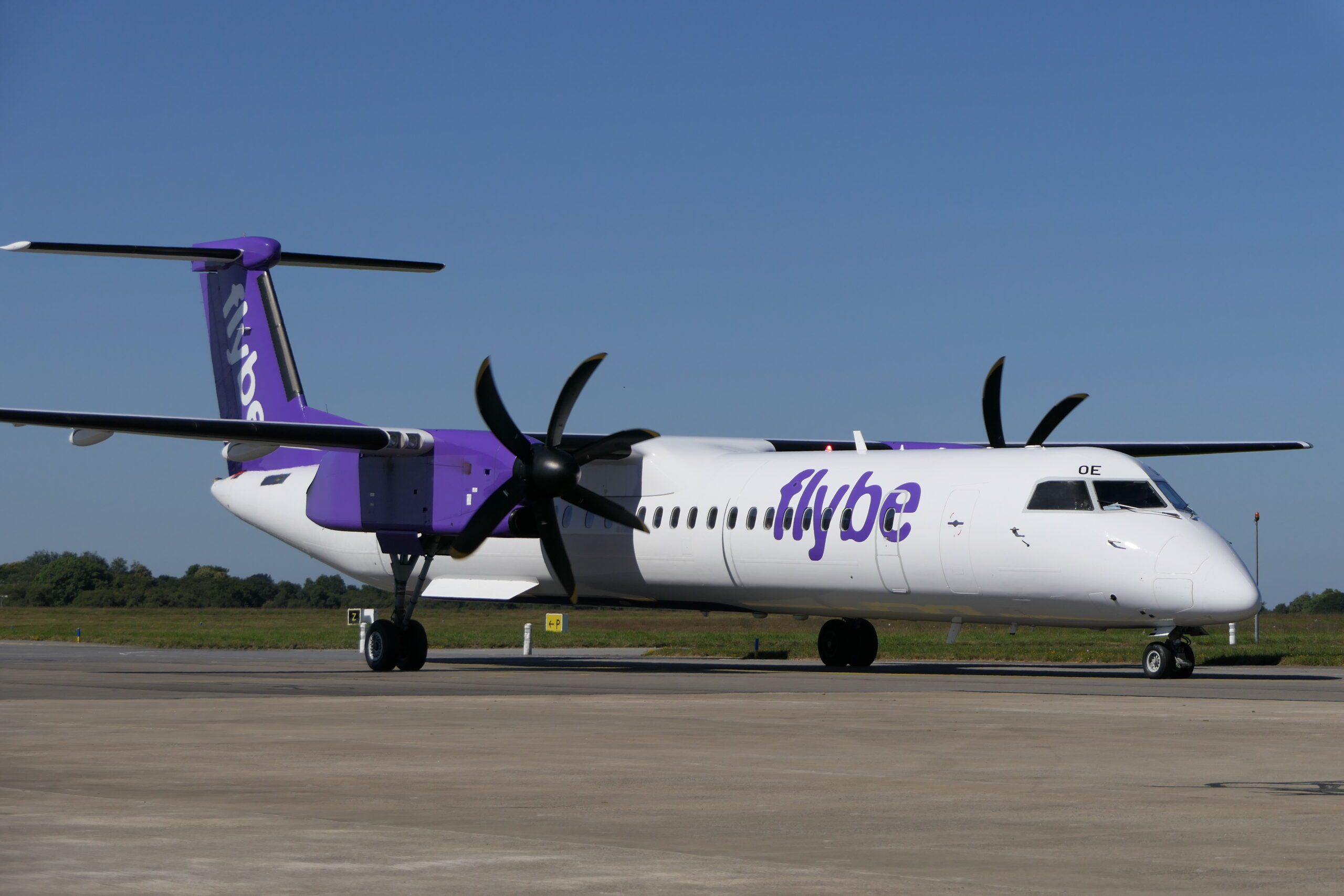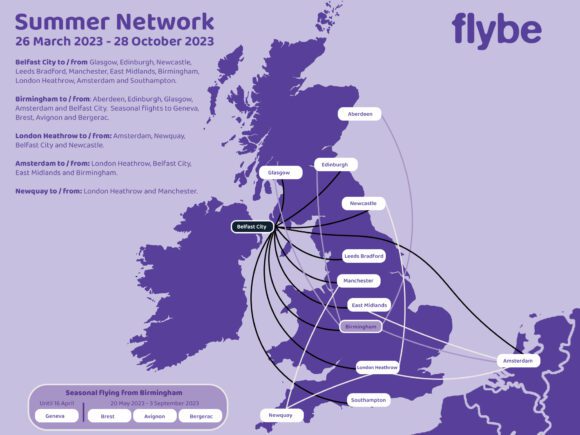
Flybe scaled
UPDATE – Chances are slim that UK regional airline Flybe will be able to continue after it announced on January 28 that it has ceased all operations. Two curators are trying to find new investors, but their job seems most challenging. It took two years to restart Flybe until April 2022 after it went bankrupt in 2020, so its demise comes within just nine months in a difficult market. Flybe’s chances of a restart look very slim.
Flybe issued a statement very early morning on Saturday, stating that all flights to and from the UK had been canceled and would not be rescheduled. The High Court appointed David Pike and Mike Pink as joint administrators to manage affairs, business, and property.
The sudden end of operations reportedly affected some 2.500 passengers on Saturday, but a total of 75.000 customers had booked tickets on UK domestic flights and to Belfast, Geneva, and Amsterdam. easyJet and British Airways immediately offered discount fares to affected passengers. The company employed some 321 staff.
The reasons for Flybe’s demise are complex and simple at the same time. On March 5, 2020, a month before the Covid crisis started, the airline filed for its first bankruptcy on the back of rising debts in 2019 and early 2020. Flybe was acquired in October 2020 by Thyme Opco, a subsidiary of its previous shareholder Cyrus Capital. As the Covid crisis continued into 2021, Flybe delayed the re-launch of operations until April 2022 out of its Birmingham and Belfast City hubs.
Flybe targeted to operate 900 flights per month with a fleet of up to seventeen De Havilland Canada Dash 8-400s, to be leased from Nordic Aviation Capital (NAC) and Aergo Capital. But in April 2022, only four aircraft had been delivered, followed by two more in July. This left Flybe short of aircraft to operate its schedule and delayed the launch of new services. Flybe was forced to wet lease capacity for the summer, one 8-400 and an Embraer E175. As a result, Flybe operated only some 500 daily flights to 21 destinations.
AirInsight learns that NAC’s own Chapter 11 restructuring had no influence on its obligation to lease twelve Dash 8-400s to Flybe. Of these, eight had been delivered between late 2021 and earlier this month, with two more in the final delivery phase until the airline filed for administration. The effects of the Covid-crisis and supply chain issues from De Havilland Canada also affected the availability of the aircraft.
As recently as on January 11, Flybe announced ambitious plans to grow its summer schedule. Aberdeen, Edinburgh, Glasgow, and Amsterdam were on the schedule from both Birmingham and Belfast City. Birmingham also was to offer flights to Aberdeen and seasonal services to Brest, Avignon, and Bergerac in France. From Belfast City, Leeds Bradford, East Midlands, Southampton, and London Heathrow were served. Heathrow offered flights to Amsterdam, Newquay, Belfast City, and Newcastle. Services to Geneva were only seasonal until mid-April.
“Our entire team is thrilled to be starting our second year of operations with this greatly enhanced summer schedule”, CEO Dave Pflieger said in a media statement. “We plan to not only provide great everyday value-for-money, but also better-than-ever flight options across the UK, over to Amsterdam, and south to popular holiday spots in France.”
Monthly losses of £5 million
Administrator David Pike told FlightGlobal that the late delivery of seventeen aircraft from the two lessors compromised Flybe’s possibilities to remain competitive. Without the aircraft, the airline had to rely on just a small network on which it saw fierce competition from rival airlines. According to the Financial Times, Flybe has been losing £5 million per month for some time, which became unsustainable and led to the company filing for administration.
The administrators have retained a core staff of some forty people, in case they succeed in finding new investors for Flybe. But the staff will be kept on for only a limited period.
Views: 14




